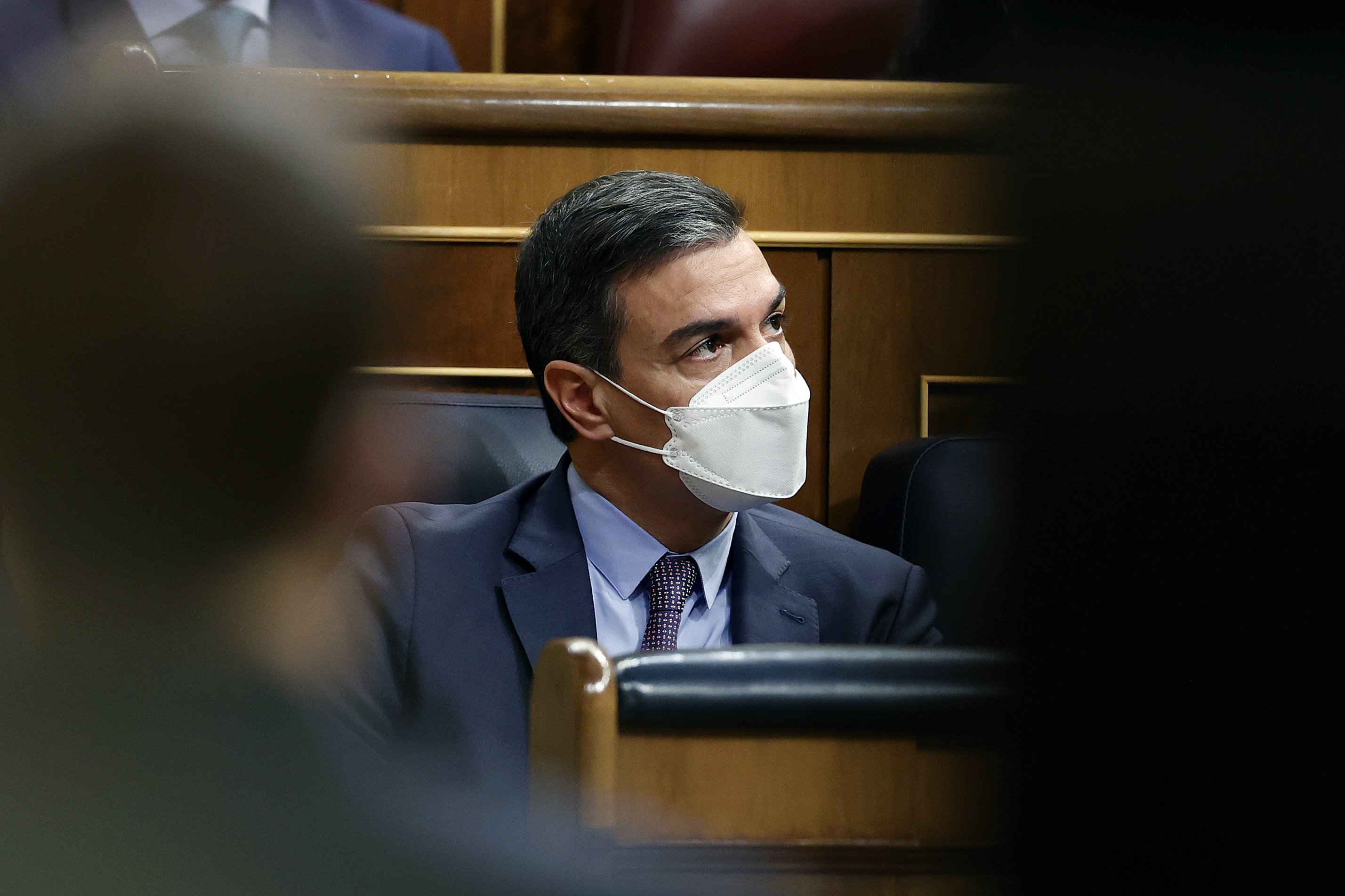Not a word of self-criticism from the Spanish government. Not over the issue itself and not over the way the way it has been handled either. Four days after abandoning Western Sahara's right to self-determination and buying Morocco's autonomy plan for the territory, the Spanish government has stressed that it is a "good deal" that benefits Spain and allows "progress in stability, territorial integrity and economic prosperity". On the other hand, government spokesperson Isabel Rodríguez traversed the issue on delicate tiptoes. Only after many questions did she admit to any need for balance, assuring that the Moroccan autonomy plan for the Sahara "allows for progress" but at the same time that "the solution must be produced within the framework of the United Nations." Finally, the Spanish prime minister is to appear in Congress next Wednesday to give an explanation, in a diluted appearance in which time will be divided between the European Council, the NATO summit and the response plan for the war in Ukraine.
The letter that was leaked from the other side of the Straits of Gibraltar, which involved abandoning the self-determination for the Saharawi people (a commitment included in the PSOE manifesto), has generated outright rejection within the Spanish government (from Unidas Podemos) and outside (the rest of the opposition). But at the Moncloa government palace they are avoiding all self-criticism and have come out in defence of the "new framework of relations with Morocco", which makes it possible to close a serious diplomatic conflict that has lasted since last spring. "This is good news for Spain because it means putting an end to a crisis that has continued for more than a year," said Isabel Rodriguez at the press conference after today's weekly cabinet meeting.
It was only after several questions that the Socialist politician used the words "Western Sahara". And Rodríguez argued that "Spain remains in the same position", that "a solution must be sought within the framework of the United Nations" and one that is "mutually accepted by the parties". However, she also said that the autonomy plan proposed by Morocco "could allow progress" in the pursuit of a solution.
Neither did the Spanish government clarify when Algeria, a strategic partner for Spain, received the news. However, the third deputy PM Teresa Ribera assured that there is no concern about a possible impact on the gas imported to Spain from that country. Ribera said the relationship was "excellent" and that they hoped it would "continue to be so".
Appearance in Congress
Pedro Sánchez's about-turn on Western Sahara, abandoning the self-determination of the Saharawi people, has left him without allies - not within his government (due to the opposition of the coalition's junior partner) nor at parliamentary level. This was shown in the Congress of Deputies on Monday: a total of eleven parties in the lower house, most of them allies who have supported the government at parliamentary level, registered a request for the Spanish president to appear to give explanations. The PP also registered one, and Ciudadanos and Vox also joined in demanding an appearance. In the end, however, the PM is doing so on his own initiative.
The issue made its presence felt today in the Congress of Deputies. At a press conference, ERC's Gabriel Rufián railed against Pedro Sánchez, for "swapping principles for interests", and urged Unidas Podemos to "reflect on how they can be more useful, inside or outside the government". He warned that "the feeling on the street is that it's got beyond a joke." In the same vein, Junts spokesperson Míriam Nogueras criticized the PSOE and the PSC for "breaching their electoral programmes", which spoke of the Saharawi people's self-determination to resolve the conflict.
Unidas Podemos spokesman Pablo Echenique tried to calm things down, saying that prime minister Pedro Sanchez will appear in Congress next week to report on the European Council and also on Western Sahara. However, Echenique also warned that the PSOE is geting close to the PP line on many issues, such as defence policy as well as "leaving the Saharawi people at the mercy of the Moroccan dictatorship."
A gesture by Unidas Podemos
Despite ruling out their withdrawl from the Spanish government over the issue, Unidas Podemos continues to protest. This Tuesday afternoon they made a gesture in the parliamentary chamber itself, unfurling Saharawi flags in the Congress to show their support for the people. From the lecturn, deputy spokesperson Sofía Castañón asserted that "our group, here and now, defends the legitimate right of this people to a referendum based on their right to self-determination as recognized by the United Nations."

Image of the Unidas Podemos area of the Spanish parliament with several MPs displaying Sahara flags. EFE

